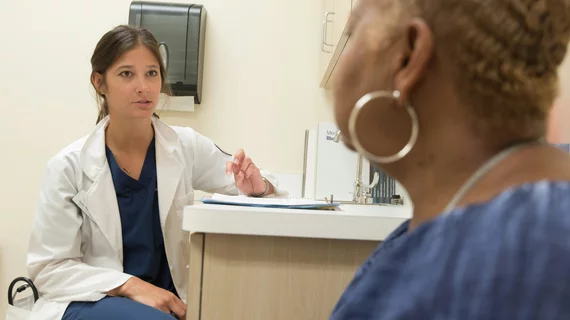What do patients want from primary care providers?
Primary care physicians face pressures unique to their station in the medical ecosystem. Not least among the pain points are constantly packed caseloads, rushed patient engagements and demanding nonclinical duties—not to mention relatively low pay compared with most other specialties.
Given all that, it’s not hard to understand why the field faces a shortfall of more than 40,000 practitioners by 2036.
How does this picture play out for the patients of these “gatekeepers” of healthcare economics? To find out, U.S. News & World Report surveyed 2,000 American adults (56% female, 44% male) in February.
Almost three in four respondents, 73%, had their most recent physical exam recently (in 2023 or 2024), the outlet reports this week.
In addition, 68% plan to have a checkup this year. And nearly 30% see their primary care provider, or PCP, more often in recent times than they did prior to the COVID pandemic.
Here are some of the outlet’s other key findings as published online April 24.
Among U.S. adults who had an annual physical exam recently:
- 96% feel comfortable with their PCP.
- 95% trust their PCP.
- 81% went to a PCP they’d seen previously.
- 29% visit their PCP more often since the start of the COVID pandemic.
Of those who haven’t had an annual physical recently:
- 32% can’t fit an appointment into their schedule or keep forgetting to make an appointment.
- 25% don’t like going to the doctor.
- 12% just haven’t found a PCP they like.
- 12% are unsure when they’ll go in for their next annual checkup
- 10% have felt shamed or judged by doctors in the past.
- 10% are afraid of getting sick from others during a PCP visit.
Topics on which U.S. adults want to know their PCP's stance:
- 47% Alternative medicine
- 43% COVID vaccines
- 23% Vaccinations for infants and children
- 20% Cannabis
- 20% Ethnic disparities in healthcare
- 18% Masking
- 13% Abortion
- 13% Contraceptives
- 8% LGBTQ-specialized primary care
Most Americans, 81%, follow their PCP’s advice. When don’t they do so?
- 43% when the advice is difficult to implement in daily life
- 34% when they cannot afford what the doctor recommends
The vast majority of respondents feel comfortable with (96%) and trust (95%) their PCP. However:
- Only 35% felt heard and understood by their PCP during their last annual physical exam.
- Just 26% said their PCP eased their nerves during their last annual physical exam.
The author of the survey report, associate health editor Annika Urban, suggests primary care providers are important to the healthcare system as well as patients.
“These health professionals can see and treat a person throughout their life, tracking medical issues over the course of years or decades, and puzzling together pieces of medical information to understand a full picture of a patient’s health,” she writes.
More:
‘While many Americans have a PCP whom they see regularly and report positive experiences with, there are still millions of people who do not see a PCP on a regular basis for a variety of reasons, from time constraints to trust issues and poor prior experiences.’

